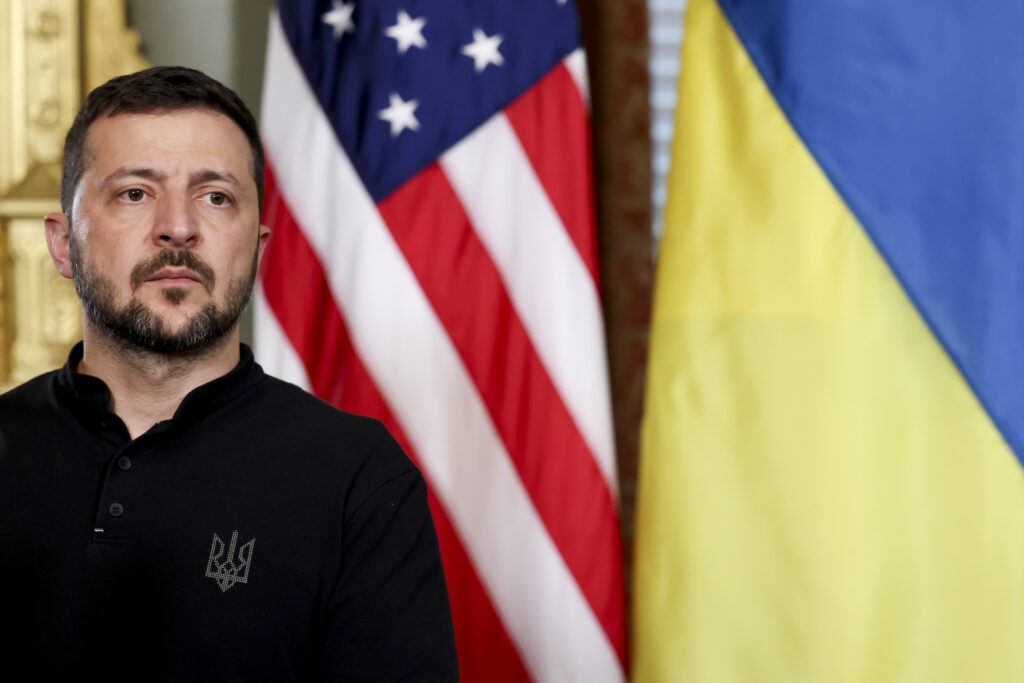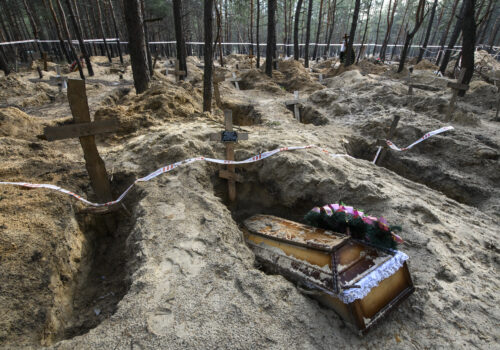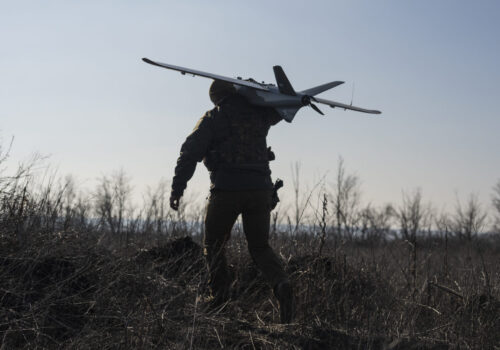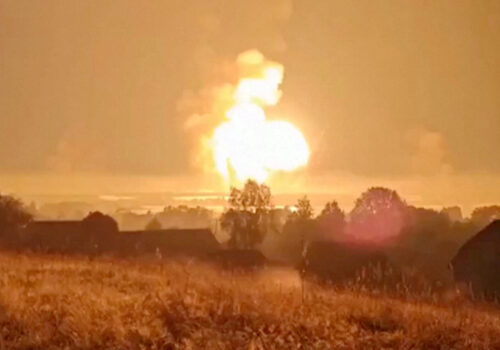
As the US election nears, anxiety is mounting in Ukraine

The coming United States presidential election will have truly global ramifications. Few countries have more at stake than Ukraine, which is heavily reliant on continued US support to maintain the fight against Russia’s invasion. As the November 5 vote draws nearer, Ukrainians are anxiously observing the final weeks of the campaign.
Over the past two-and-a-half years of Russia’s full-scale invasion, Ukrainian officials, military personnel, and members of the public have gone to considerable lengths to express their gratitude for US support and acknowledge the critical role this has played in their country’s war effort. However, there is now a sense of disquiet over the future of US aid.
Ukrainian concerns are primarily focused on the potential consequences of a Donald Trump victory in the forthcoming election. While Ukrainian officials and commentators generally prefer not to make any public statements about the presidential race in order to avoid accusations of interfering in domestic US politics, many acknowledge a growing nervousness.
Uncertainty in Kyiv over the former president’s position is not a new phenomenon and can be traced back almost a decade to the 2016 US presidential race. “Trump’s view of Ukraine has been persistently negative for the last eight years at least,” Odesa National University Center for International Studies director Volodymyr Dubovyk commented in September 2024. “Much of this view was shaped by people antagonistic to Ukraine.”
Trump’s support for Ukraine while in the White House, which included the delivery of Javelin anti-tank missiles, did much to rebuild confidence in Kyiv. He also chose not to use his influence over Republican members of Congress to block aid for Ukraine earlier this year. Nevertheless, there is currently considerable unease over the former US president’s vague plans for peace with Russia, which many Ukrainians fear would involve unacceptable territorial concessions.
Stay updated
As the world watches the Russian invasion of Ukraine unfold, UkraineAlert delivers the best Atlantic Council expert insight and analysis on Ukraine twice a week directly to your inbox.
Ukrainian President Volodymyr Zelenskyy has sought to downplay concerns by referring to Trump’s more troubling campaign trail rhetoric on Ukraine as “election messages.” Despite these efforts, there remains significant uncertainty over what a Trump victory would mean for Ukraine, with some worried that he would be likely to adopt a softer approach toward Russia.
The sense of anxiety in Ukraine has been heightened by recent revelations in a new book by US journalist Bob Woodward, who claims Trump sent COVID-19 testing equipment to Russia in 2020 for President Vladimir Putin’s personal use. The book also alleges that Trump and Putin may have spoken up to seven times since Trump left the White House in 2021, according to an unnamed aide.
Trump campaign officials have denied these accusations. The Kremlin has confirmed that Russia did receive COVID tests from the United States, but has downplayed the significance of the gesture.
Throughout the current election campaign, Trump’s comments on Ukraine have centered on his commitment to ending the current war in one day, while also claiming that Russia’s full-scale invasion of Ukraine would never have happened if he had remained in office. Speaking alongside Zelenskyy in New York in September, Trump highlighted his “very good relationships” with both Putin and Zelenskyy, while insisting that he could broker a settlement between the two leaders “very quickly.”
Eurasia Center events
Not everyone in Ukraine is convinced a Trump presidency would be bad news for the country. Some prefer to emphasize Trump’s important contribution in April 2024 when he chose not to come out against House Speaker Mike Johnson’s Ukraine aid bill, which likely would have prevented it from passing Congress. Allies of the former president have also said that he is receptive to advice from a number of officials who have cautioned him about the potentially dangerous repercussions of a Russian victory in Ukraine.
Perhaps the most detailed outline of possible future US policy toward Ukraine during a potential second Trump presidency has come from Trump’s vice presidential nominee, Senator JD Vance. In a September 2024 interview, Vance indicated that Trump’s peace plan for Ukraine would involve allowing Russia to remain in control of the Ukrainian regions it currently occupies, establishing a demilitarized zone, and obliging Ukraine to commit to neutrality.
If implemented, such a settlement would likely be seen as a significant victory in Moscow. Critics have warned that it would also jeopardize Ukraine’s future security and could set the stage for further Russian aggression. However, it is important to underline that Vance’s comments have not been endorsed by Trump and do not represent official policy.
Trump’s often evasive statements on Ukraine may suggest that he is keeping his options open for the future. While much of his rhetoric in relation to Ukraine has set off alarm bells in Kyiv, he has also been supportive of US aid to the country and is doubtless aware that many in his own party continue to favor a strong pro-Ukrainian position.
Recent allegations regarding the former US president’s personal relations with Putin will do little to ease existing concerns in Ukraine. If Trump does win a second term next month, his approach to the Russian invasion of Ukraine may ultimately depend on the advice he receives from those closest to him. Ukrainians will be hoping that bipartisan political backing for their country and continued indications of strong support for Ukraine among the US public will be enough to prevent any major shifts in United States policy.
Kate Spencer is a program assistant at the Atlantic Council’s Eurasia Center.
Further reading
The views expressed in UkraineAlert are solely those of the authors and do not necessarily reflect the views of the Atlantic Council, its staff, or its supporters.

The Eurasia Center’s mission is to enhance transatlantic cooperation in promoting stability, democratic values and prosperity in Eurasia, from Eastern Europe and Turkey in the West to the Caucasus, Russia and Central Asia in the East.
Follow us on social media
and support our work
Image: Volodymyr Zelenskyy, Ukraine’s president, during a meeting with US Vice President Kamala Harris, not pictured, in the Vice President’s Ceremonial Office in Washington, DC, US, on Thursday, Sept. 26, 2024. The US on Wednesday announced a new weapons package for Ukraine worth $375 million, including ammunition for rocket systems and artillery, as well as armored vehicles and anti-tank weapons. (Photographer: Ting Shen/Pool/Sipa USA)





